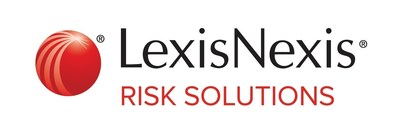LexisNexis Risk Solutions True Cost of Fraud Study: SNAP and IES – Reveals Every $1 of Fraud Now Costs Agencies $3.93

Fraud Surges in SNAP – Over One-Third of Agencies Report Spike in Identity Theft and EBT Skimming, Especially Among Multi-Program Systems
ATLANTA, Oct. 22, 2024 /PRNewswire/ — LexisNexis® Risk Solutions today released its third annual LexisNexis® Risk Solutions True Cost of Fraud™ Study for Supplemental Nutrition Assistance Program (SNAP) Agencies and Integrated Eligibility Systems (IES). This authoritative study reveals the level and impact of fraud, including challenges, volume, and cost, as well as resources that SNAP and IES agencies utilize to detect and prevent fraud. In addition to analyzing the cost of fraud, the study explores the time and resources expended by SNAP investigators to prevent attacks and mitigate fraud and analyzes current fraud trends impacting these critical government benefits.
The 2024 study features a broad scope of integrated eligibility systems (IES), including:
- Supplemental Nutrition Assistance Program (SNAP),
- Center for Medicaid Services (CMS),
- Special Supplemental Nutrition Program for Women, Infants and Children (WIC),
- Temporary Assistance for Needy Families (TANF), and
- Low Income Home Energy Assistance Program (LIHEAP).
The 2024 study was expanded to focus on SNAP agencies’ application processing time (APT) and payment error rates (PER) and the downstream impacts to beneficiary and case worker experience. The study also examined the degree to which SNAP agencies have implemented operational modernization features to support fraud detection efficiencies while minimizing delays and negative impacts to program beneficiaries and agency staff.
Key Findings:
- Rising Fraud Costs: SNAP agencies are facing increasing costs as fraud continues to grow, particularly through EBT skimming and account takeovers. Agencies impacted by these types of fraud report losing an average of $4.48 for every $1 of benefits lost—higher than the overall fraud cost of $3.93 per $1 lost.
- System Integration Adds Complexity: The expansion of IES across Human Services programs has increased fraud risks. With more access points for bad actors, fraud costs have risen to $4.04 per $1 lost through fraud, up from $3.85 last year. While IES enables better data sharing, it has not fully mitigated the complexities of fraud detection and prevention.
- Delays Impacting Staff and Beneficiaries: Outdated systems, manual processes, and resource limitations contribute to application processing delays for SNAP agencies. These delays negatively affect both the caseworker experience and the speed at which benefits reach those in need. Major challenges include the inability to quickly verify eligibility and identity data, leading to processing backlogs and increased worker stress.
- Modernization and Fraud Detection are Critical: Agencies struggle to combat fraud without hindering the beneficiary experience. Malicious bots, synthetic identities, and challenges in tracking transaction sources are absorbing significant resources. Fraud detection solutions remain underused at the application stage, with most agencies focusing on post-issuance prevention. However, agencies that integrate modernization with early-stage fraud detection realizing improvements in processing times, reduced fraud costs, and enhanced experiences for both workers and beneficiaries.
“SNAP has become more crucial than ever as millions of Americans face the dual crises of hunger and soaring food prices,” said Haywood Talcove, CEO of LexisNexis Risk Solutions Government. “What is particularly alarming is the rise in highly sophisticated criminal tactics, with both domestic and international groups exploiting advanced technologies like artificial intelligence and bots to target critical government aid programs. Our latest study highlights the immense challenges agencies face—not only in preventing fraud but in modernizing systems to ensure that food assistance reaches those who need it most. As these threats evolve, so too must our defenses, because this is about more than just fighting fraud—it is about protecting the livelihoods of vulnerable families across the country.”
The 2024 True Cost of Fraud™ Study highlights the escalating costs of fraud for SNAP agencies, driven by sophisticated fraud schemes and outdated processes. Agencies that adopt a proactive approach—integrating modernization efforts with early fraud detection—are better equipped to lower fraud costs, reduce errors, and improve service delivery for beneficiaries.
Download a copy of the True Cost of Fraud™ Study for Supplemental Nutrition Assistance Program (SNAP) Agencies and Integrated Eligibility Systems (IES).
About LexisNexis Risk Solutions
LexisNexis® Risk Solutions harnesses the power of information and advanced analytics to provide insights that help businesses and governmental entities reduce risk and improve decisions to benefit people around the globe. We provide data and technology solutions for a wide range of industries including government, insurance, financial services and healthcare. Headquartered in metro Atlanta, Georgia, we have offices throughout the world and are part of RELX (LSE: REL/NYSE: RELX), a global provider of information and analytics for professional and business customers. For more information, please visit www.risk.lexisnexis.com and www.relx.com.
Media Contact:
Paul Eckloff
LexisNexis Risk Solutions
Mobile: +1.202.941.6986
Paul.Eckloff@lnssi.com
![]() View original content to download multimedia:https://www.prnewswire.com/news-releases/lexisnexis-risk-solutions-true-cost-of-fraud-study-snap-and-ies—reveals-every-1-of-fraud-now-costs-agencies-3-93–302282163.html
View original content to download multimedia:https://www.prnewswire.com/news-releases/lexisnexis-risk-solutions-true-cost-of-fraud-study-snap-and-ies—reveals-every-1-of-fraud-now-costs-agencies-3-93–302282163.html
SOURCE LexisNexis Risk Solutions


